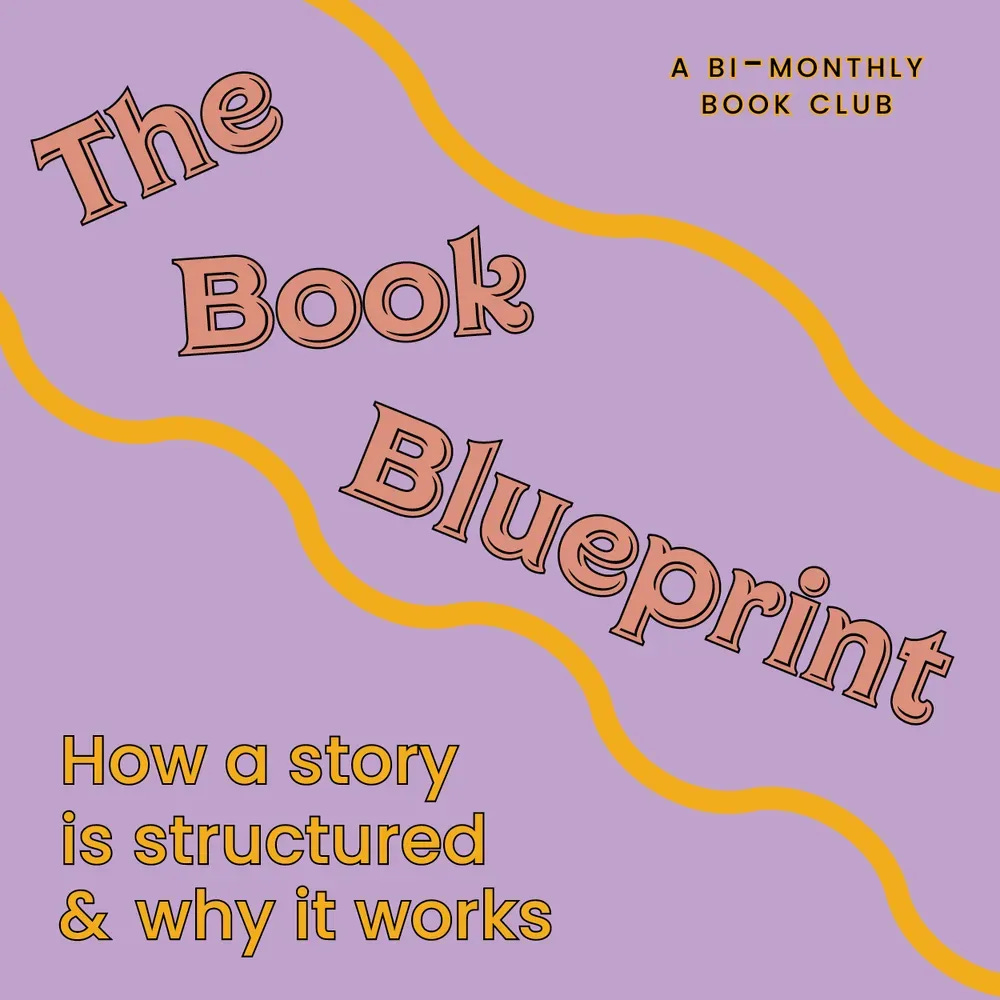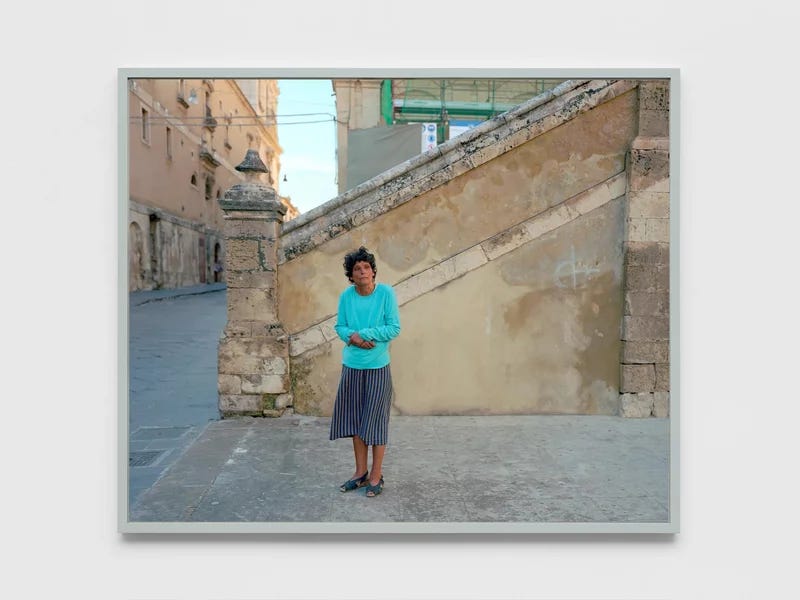December 2024: Q&A with Poet Elizabeth Burk, author of Unmoored 🍾 💫
❄️Plus, a little art and theater ❄️
Dear Writers,
It is such a pleasure to be writing to you with news of a great new book of poems. Elizabeth Burk is a poet, psychologist, and dear friend of my friend and co-teacher, Judith Rabinor. Liz and Judy met in graduate school and Liz took a monthly Monday night writing workshop that Judy and I co-teach. Liz has a new book of poetry out, Unmoored, and it is extraordinary. Once I started reading it, I couldn’t stop. Liz’s poems are like the best poems by Sharon Olds, Mary Oliver and Anne Sexton—her poetry is funny, beautiful, juicy, loving, sexy, mournful and brutally candid. “The book is loosely arranged as a memoir in poems,” Liz says. “The poems are mostly narrative, as I am basically a story-teller at heart.”
I folded down almost every page of this book, indicating my “favorites.” These include My Mother’s Dreams, Come In, Internship—Pittsburgh, 1979, Watching Him Peel an Onion, Making Love With a Southern Boy, Mistaken and Forsaken, He Visits Me, Deciding to Marry, How to Visit Cajun Country, Louisiana Purchase, Sinking, Gardening in the Dark, Here, Now, At the Wake of My Ex-Husband’s Third Wife, Sex After Seventy-Nine, Carapace.
🎊 Celebrating Elizabeth & her new book of poetry: Unmoored 🎉
Judy is hosting a book party for Liz, Thursday night, December 5, 6-8 p.m in NYC. Liz will sign books and read her poetry. Email me for party details.
What first inspired you to write?
I was in my fifties, well into my career as a psychologist with a thriving clinical practice, an empty nester, divorced, at loose ends relationship-wise. I decided to take some writing courses and surprised myself by turning to poetry. At about this same time, I met a man from southwest Louisiana, the heart of Cajun country. (Cliché though this may be, I doubt the timing was coincidental!) My new relationship along with my experiences and observations about Louisiana life—the people, the music, the dancing, the food, the basins, bayous and swamps, and the Cajun French language spoken here, fascinated me and inspired many of my early poems. Eventually, I compiled these poems into my first two chapbooks, Learning to Love Louisiana, and Louisiana Purchase. Many of those “Louisiana poems” now appear in section III of my new book, Unmoored. In fact, all the poems in Unmoored are loosely arranged chronologically, starting with stories and reflections about growing up in New York City, living abroad, my first marriage, and the life of a city girl in rural southwest Louisiana who is attempting to age with humor and grace. Basically, Unmoored is structured as a memoir in poems.
How did you choose to write poetry over prose genres such as creative non-fiction, memoir, short stories or novels?
Many people find poetry obscure and inaccessible— not as easy and as much fun to read as novels, short stories, and memoirs. Truthfully, I was one of those people before I started writing myself and began to seriously explore poetry as a possibility. A young patient, a poet, had asked me if I read poetry. When I admitted that I did not, that I found most poetry annoyingly incomprehensible, she brought me two books—one by Mary Oliver, another by Billy Collins. Although these two poets are very different, they introduced me to poems that are accessible, moving, filled with wisdom, insights, and stories I related to. And given my compromised attention span and rambling mind which often takes me off on tangents, narrative poetry is a format that best helps me to focus and has become, for me, the perfect vehicle for reflection and story-telling. When I let my unconscious lead the way, I often end up in places that are surprising even to me.
What is your writing process?
I wish I had a regular writing process but as I’m rather disorganized, I rely mainly on inspiration and sit down to write at odd, unscheduled times. I write about whatever’s been on my mind—a past or present relationship, a memory, a compelling event I’ve seen or read about, something I want to better understand. Sometimes a dream will inspire a poem, and I start writing to see where it goes. Inspiration often happens late at night and has turned me into a night owl. Then comes the difficult work of revision— a painstaking, exacting procedure, but one I’ve come to love—for me, it’s where the real writing occurs.
Where do you write? (Bed, desk, kitchen table, coffee shop, etc.) Standing up? Sitting down?
I always write sitting at the computer. I avoid writing long-hand, can’t read my own writing and don’t like crossing out and putting stars and arrows all over my hand-written pages. In fact, I didn’t start writing seriously until I owned a computer—I was thrilled by the ability to copy, cut and paste, to rearrange words, stanzas, paragraphs, and to be able to read back what I wrote.
Do you read actual books, read on Kindle, read on Audible, or borrow from library?
These days I read almost exclusively on Kindle, except for poetry—Kindle often massacres line breaks and stanzas, ruining a poem’s format. And while using a Kindle makes traveling back and forth from Louisiana to New York so much easier, I do miss turning the pages of actual books, writing in margins, being able to flip back to re-read passages which is difficult to do on a Kindle.
Which writers do you now turn to for inspiration?
The poets who continue to interest me the most are poets such as Sharon Olds, Louise Gluck, Ellen Bass, Kim Addonizio, Dorianne Lux, Ann Carson, and Diane Seuss among many others—primarily women poets who write openly about their own lives and experiences. But I do branch out. These days, my mailbox is flooded with new and exciting poems from journals and poetry sites. When a poem particularly moves me—either the story, the language, the structure—that will often inspire a new poem. Recently I’ve been turning to the poet/writer Rachel Zucker, who wrote “The Poetics of Wrongness” in which, with both humor and serious intent, she encourages us poets to break away from former “rules” of poetry and to tell our stories in the way we choose.
I also turn to the works of Lydia Davis, for her plain-spoken, yet always compelling prose stories and vignettes, and to Sigrid Nunez, a novelist, for her narrative style and her psychological insights and observations. I greatly admire political poets, such as Carolyn Forche, but I find politics hard to write about without sounding like I’m on a soapbox. In Unmoored I do allude to the politics I grew up with as a red diaper baby: “A map of the Soviet Union, mounted with masking tape hung on our cracked and paint-peeling kitchen walls…” —a line from my poem, “Joseph Stalin and My Father.” I have to be careful where I read that poem, as Louisiana is not a state abounding with liberals.
If you have had a story, essay or book published recently, how many drafts did you revise before you finally submitted it? How many hours/months/years (roughly) did you spend on it?
Unmooored, was recently published by Texas Review Press. It’s hard to say how many drafts of this entire book I worked on. Each poem requires many drafts—sometimes only two or three but I’ve written up to twenty drafts of a single poem. Many of these poems were previously published in journals, and not written with a book in mind. But eventually, I realized that if I sequenced my poems chronologically, they told a story. Then it was a matter of choosing which poems to use and in what order. That process took about a year.
What are you working on now?
Aging is a topic that is frequently on my mind. Seniors nowadays make up a large percentage of the population, and not much is written about the female aging experience in an intimate and honest way. I’m thinking of compiling all my aging poems and putting them together in a new chapbook. Now that I’m almost completely retired, I’ve also started writing more about my experiences as a psychologist—what goes on in the therapist’s mind as they listen and silently react to what their patients are saying. It remains to be seen where these poems will take me.
📢 We’ve Got Some News 📢
Starting in January our exclusive video Q&A’s will be available to paid subscribers. Consider buying a subscription to our Substack and supporting our business today ✨
Three Thursdays nights, 5:30-6:30 p.m ET via Zoom
Calling all readers and writers— we’re on the 2nd season of our online book group. Join us! We discuss how a book is structured and why it works. We meet for an hour, via Zoom. The class runs for three sessions. The cost is $150 ($50/session). Sign up using the link below, or we accept Zelle or Venmo @Laura-ZinnFromm.
Winter Book Club Agenda
For our winter sessions, we’ll read Colm Toibin's novel Long Island (January 9th, Nobel prize winner Han Kang’s novel, The Vegetarian (February 6), and Elizabeth Strout’s novel, Tell Me Everything (April 3).
We will explore the following questions:
How well-written was the book? More specifically, was the story so absorbing that as the reader, we forgot where we were when we were reading it and stopped doing everything else so we could finish it?
Did the characters feel “real?” Did we think that we understood them intimately? Could we imagine what it was like to live these characters’ lives and navigate the challenges they faced, even if we would have done the opposite in our own lives?
Could we see what the characters saw, smelled, and tasted? If they were having sex or eating something delicious, did we feel that we were doing it with them?
Did we feel moved by the events in the book? Did the book offer a turn/pivot/surprise? Did the book educate us in some way? Did the ending blow us away?
Hans Op de Beeck, Whispered Tales (Templon). Paint it gray. Two rooms of fabulous sculptures by Belgian artist Hans Op de Beeck, plus paintings and a mesmerizing video downstairs. Everything is gray—-the walls, the carpeting, the wainscoting, the work. (Templon, 293 Tenth Ave @ 27th Street)
Thornton Dial, The Visible and The Invisible (Hauser & Wirth). Extraordinary, sculpture/paintings by self-taught artist, who literally turned garbage into art. “Memory of the Ladies That Gave Us the Good Life” includes cleaning gloves, a washbasin, scrub brush, yard ornaments, motor-oil bottles, paint brushes, and old clothing, all spray painted on wood. (Hauser & Wirth, 542 West 22nd Street)
Jeff Wall, (Gagosian). Beautiful exhibit of large photographs, some soothing and scenic, others, like Young man wet with rain (2011) and Portrait in Noto (2007), arresting and disturbing. (Gagosian, 541 West 24th Street)
Blood Quilt: Long, intense play about four half-sisters, who gather to make a quilt on Kwemera, an island off the coast of Georgia. after their mother passes away. The play is reminiscent of August: Osage County and Appropriate: Family members fight over almost everything. NYT review here.








